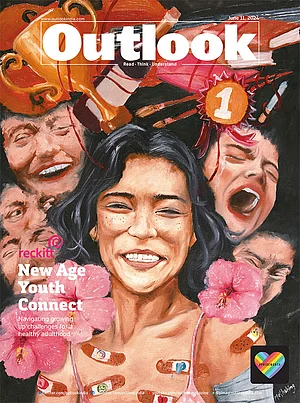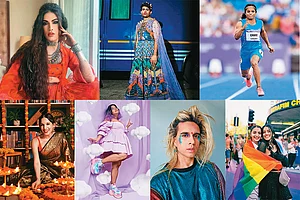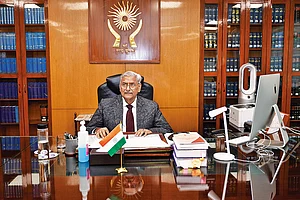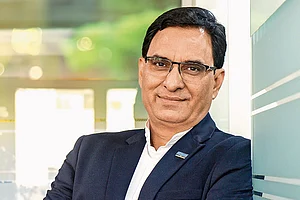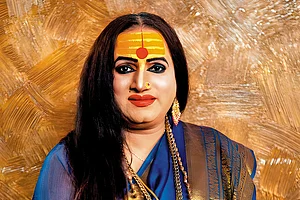- COVER STORY
A Transformative Journey
The LGBTQIA+ community has battled long and hard against deep-set social prejudices and unjust laws and notched up significant victories, but more remains to be done to achieve a just and inclusive world
How LGBTQIA+ Stars Rock On Social Media
India’s LGBTQIA+ community has created its own set of influencers. They are popular not just within the community but have become stars surpassing social boundaries. Some of them have featured in media campaigns launched by brands, while others have been recognised as authors, actors and advisors. Let us meet top LGBTQIA+ icons and learn how they influence people
"Sexual And Reproductive Health Should Not Carry A Stigma"
The National Human Rights Commission (NHRC) of India was established in 1993 under the Protection of Human Rights Act (PHRA), 1993, amended in 2006. The PHRA defines human rights as rights related to life, liberty, equality, and dignity guaranteed by the Constitution or international covenants, enforceable by Indian courts. Arun Kumar Mishra, a former Supreme Court judge, chairs the NHRC. He is a former Chief Justice of the Calcutta and Rajasthan high courts. He was also a judge in the Madhya Pradesh High Court. In this conversation with Rajiv Tikoo, Justice Mishra talks about the status of the LGBTQIA+ community, the road traversed so far, what lies ahead and much more. Edited excerpts:
TBBT Has Put Youth At The Centre Of The Discourse
Mohammed Asif is Executive Director and Dr Komal Goswami is Chief of Party at Plan International (India Chapter). While Asif leads the organisation’s initiatives in welfare and development for children and equality for girls and women in India, Goswami leads the purpose-driven initiatives of Reckitt executed through PLAN India. In an interview with Naina Gautam, they talk about The Birds and Bees Talk (TBBT) initiative, the opportunities, the achievements and the challenges so far. Excerpts:
"We Have Reached A Point Where We Can Make A Difference To Future Generations"
Laxmi Narayan Tripathi celebrates the changing perceptions about the transgender community in India
A Transformative Journey
The LGBTQIA+ community has battled long and hard against deep-set social prejudices and unjust laws and notched up significant victories, but more remains to be done to achieve a just and inclusive world
How LGBTQIA+ Stars Rock On Social Media
India’s LGBTQIA+ community has created its own set of influencers. They are popular not just within the community but have become stars surpassing social boundaries. Some of them have featured in media campaigns launched by brands, while others have been recognised as authors, actors and advisors. Let us meet top LGBTQIA+ icons and learn how they influence people
"Sexual And Reproductive Health Should Not Carry A Stigma"
The National Human Rights Commission (NHRC) of India was established in 1993 under the Protection of Human Rights Act (PHRA), 1993, amended in 2006. The PHRA defines human rights as rights related to life, liberty, equality, and dignity guaranteed by the Constitution or international covenants, enforceable by Indian courts. Arun Kumar Mishra, a former Supreme Court judge, chairs the NHRC. He is a former Chief Justice of the Calcutta and Rajasthan high courts. He was also a judge in the Madhya Pradesh High Court. In this conversation with Rajiv Tikoo, Justice Mishra talks about the status of the LGBTQIA+ community, the road traversed so far, what lies ahead and much more. Edited excerpts:
TBBT Has Put Youth At The Centre Of The Discourse
Mohammed Asif is Executive Director and Dr Komal Goswami is Chief of Party at Plan International (India Chapter). While Asif leads the organisation’s initiatives in welfare and development for children and equality for girls and women in India, Goswami leads the purpose-driven initiatives of Reckitt executed through PLAN India. In an interview with Naina Gautam, they talk about The Birds and Bees Talk (TBBT) initiative, the opportunities, the achievements and the challenges so far. Excerpts:
"We Have Reached A Point Where We Can Make A Difference To Future Generations"
Laxmi Narayan Tripathi celebrates the changing perceptions about the transgender community in India
